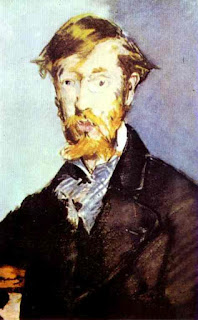Baby looked calmly at her sister.
“We should have let him confine himself to his bicycle excursions,” she remarked. “When people are taken out of their depths they lose their heads, no matter how charming a bluff they put up.”
“Dick was a good husband to me for six years,” Nicole said. “All that time I never suffered a minute’s pain because of him, and he always did his best never to let anything hurt me.”
Baby’s lower jaw projected slightly as she said:
“That’s what he was educated for.”
If the story had been told according to the revised version which Malcolm Cowley does his best to justify, it turns into a case history and we are left with an inevitable unfolding. The marriage has been founded on the basis of a transference between fragile Nicole and the strong handsome Doctor. Her healing must mean that the transference has been worked through and the relationship is at an end. When her father is reported to be dying and asking to see her, Dick does not want to tell her about this because of the supposed trauma this might bring on. That is a real fear but it also has the aspect of keeping her sealed like Sleeping Beauty in her glass coffin. When in fact through the wife of his partner in the clinic Nicole finds out she rushes to see her father. However when she arrives he has left the hotel though genuinely moribund. There is a comedic ‘Freddie’ aspect to the father.
Nicole’s willingness to attempt reconciliation with her father is the beginning of her healing and the end of the Diver dispensation. There is a Hemingway figure in the form of Tommy Barban, a soldier of fortune, with an eighth of his skull missing but the rest of him intact ready to step in and bring Nicole and the children along with him into brusque sanity.
Rosemary Hoyt is the star of Daddy's Girl, Nicole was also Daddy's girl, an event which precipitated her onset of schizophrenia. The first section, the glamourous one is related from the perspective of Rosemary which is appropriate. We are told:
The hotel and its bright tan prayer rug of a beach were one.
What is a prayer rug in the idiom of Hollywood but a fantastical suspension in a celluloid imaginal. This is palace of props which include the workroom of the Doctor where the papers which are to be the basis of a new work on psychiatry are gathered. Rosemary suspects that there is something not quite right with the Diver family. Why is Barban fighting a duel with McKiscoe? She worries her pretty little head which her mother keeps screwed on.
There are plenty of comic moments in the book. Baby Warren brings out the best in him:
“You put on your hat and come with me right away.”
The mention of his hat alarmed the Consul who began to clean his spectacles hurriedly and to ruffle his papers. This proved of no avail: the American Woman, aroused, stood over him; the clean-sweeping irrational temper that had broken the moral back of a race and made a nursery out of a continent, was too much for him. He rang for the vice-consul—Baby had won.



